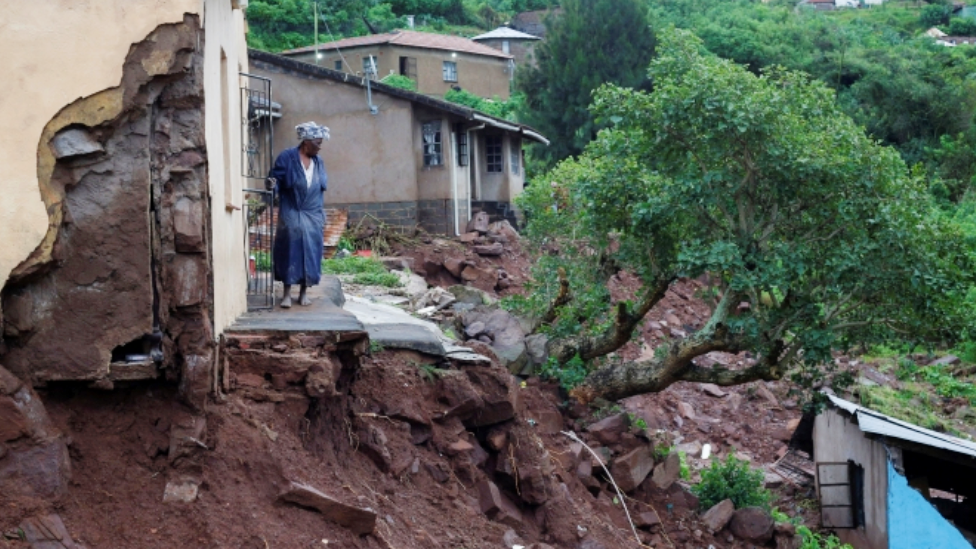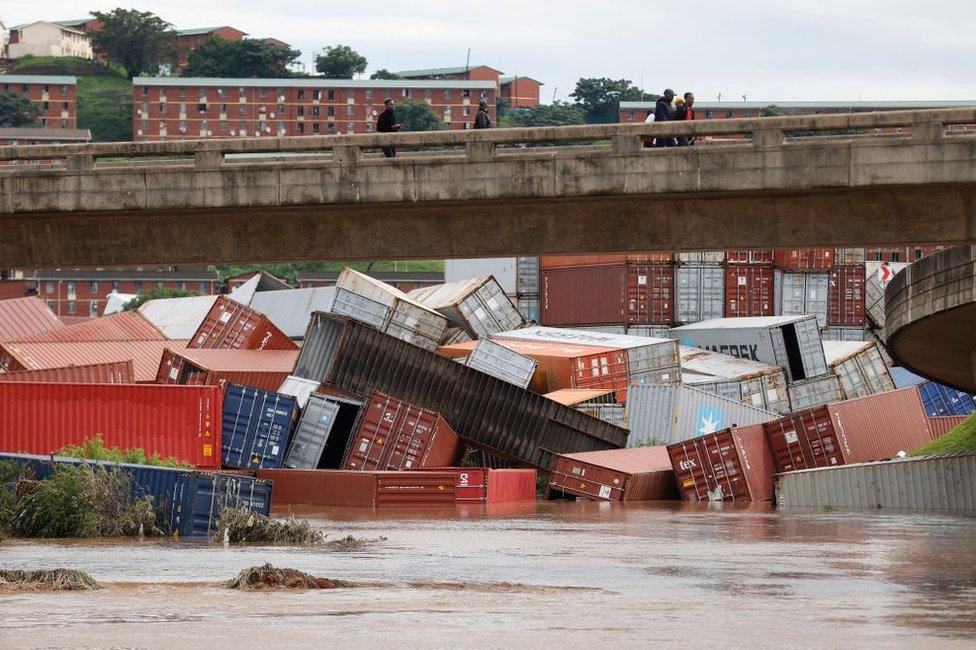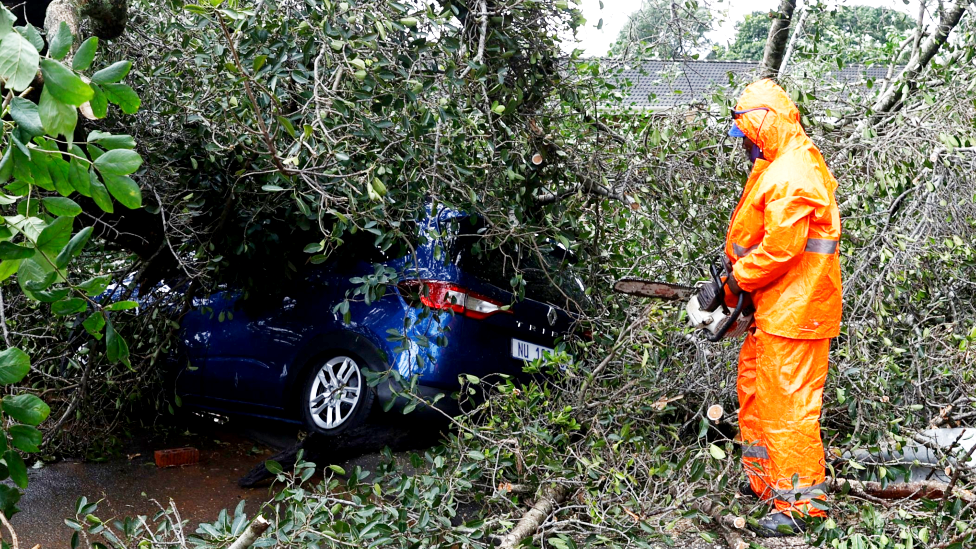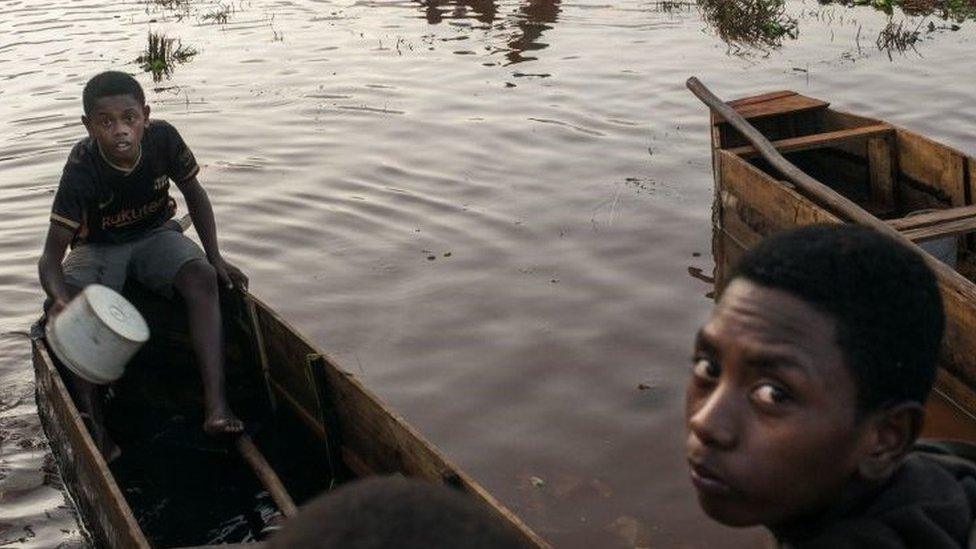South Africa's Durban floods: At least 45 die as rain and mudslides cause havoc
- Published

Many residents along the coast fear their homes may collapse after mudslides
At least 45 people in South Africa have been killed in floods caused by days of heavy rain, the authorities say.
It happened in the coastal province of KwaZulu-Natal, where many people are still missing and emergency services are searching for survivors.
Some in the city of Durban are standing on rooftops awaiting rescue, but local media report that only one helicopter is available to lift people away, external.
Key roads across the city are shut and mudslides have destroyed many homes.
It comes as scientists warn that climate change is fuelling heavier rainfall than usual in southern Africa.
The mayor of eThekwini - which is the area including Durban and its surrounding towns - has apologised to residents who were left stranded after the emergency call centre was overwhelmed overnight.
Mayor Mxolisi Kaunda also says efforts are under way to restore water and electricity supplies that have been cut to parts of the city, after most of the city's electricity power stations were flooded on Monday evening and a number of water treatment plants were damaged.
People are being urged to stay at home, but those living in low-lying areas are also being urged to move to higher ground.
Residents who fear their homes may collapse should seek shelter in community halls, Mayor Kaunda advises.
South Africans have been posting photos online of the destruction, including this collapsed road in the resort town of Umdloti:
Allow X content?
This article contains content provided by X. We ask for your permission before anything is loaded, as they may be using cookies and other technologies. You may want to read X’s cookie policy, external and privacy policy, external before accepting. To view this content choose ‘accept and continue’.

Another man shared footage what he said was a destroyed bridge in the Everton conservancy, just outside of the eThekwini Metropolitan Municipality:
Allow X content?
This article contains content provided by X. We ask for your permission before anything is loaded, as they may be using cookies and other technologies. You may want to read X’s cookie policy, external and privacy policy, external before accepting. To view this content choose ‘accept and continue’.

Floodwaters disturbed graves at nearby Ntuzuma Cemetery with reports of human bones washing on to the street, and an anti-theft vehicle-tracking agency posted footage on Twitter showing what it said was a human skull that had washed up.
The national broadcaster SABC showed footage of shipping containers strewn across a motorway in the city of Durban.
More rainfall is expected across southern KwaZulu-Natal on Tuesday, according to the South African Weather Service, which is advising citizens to stay clear of flooded roads and bridges.

Shipping containers are strewn across this motorway in Durban

Efforts are under way to clear debris caused by the storms
Related topics
- Published11 April 2022

- Published9 July 2024
